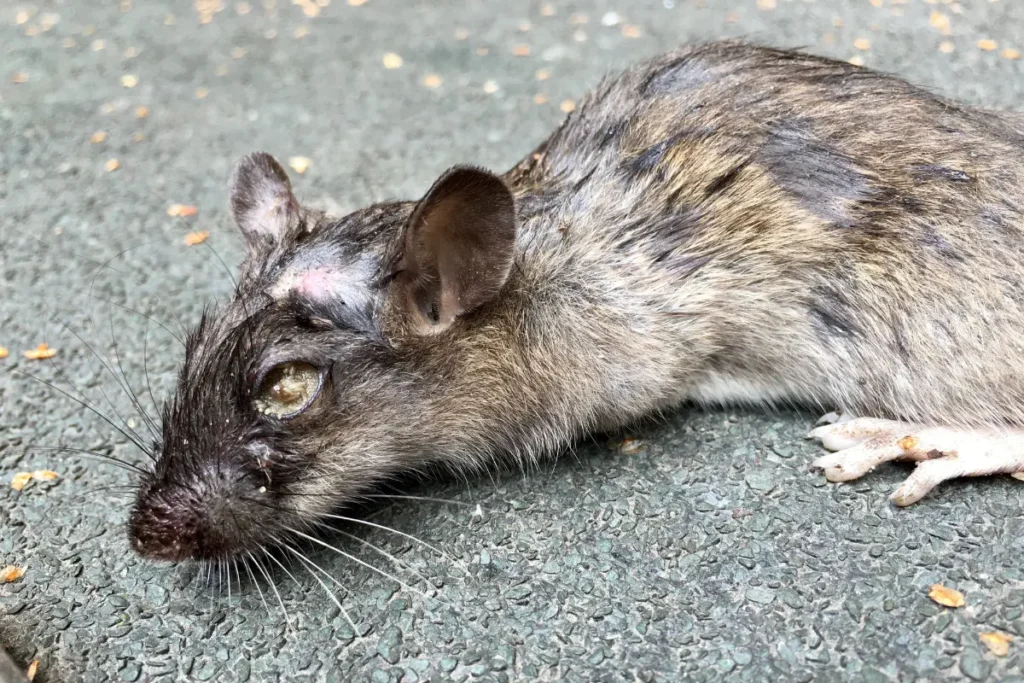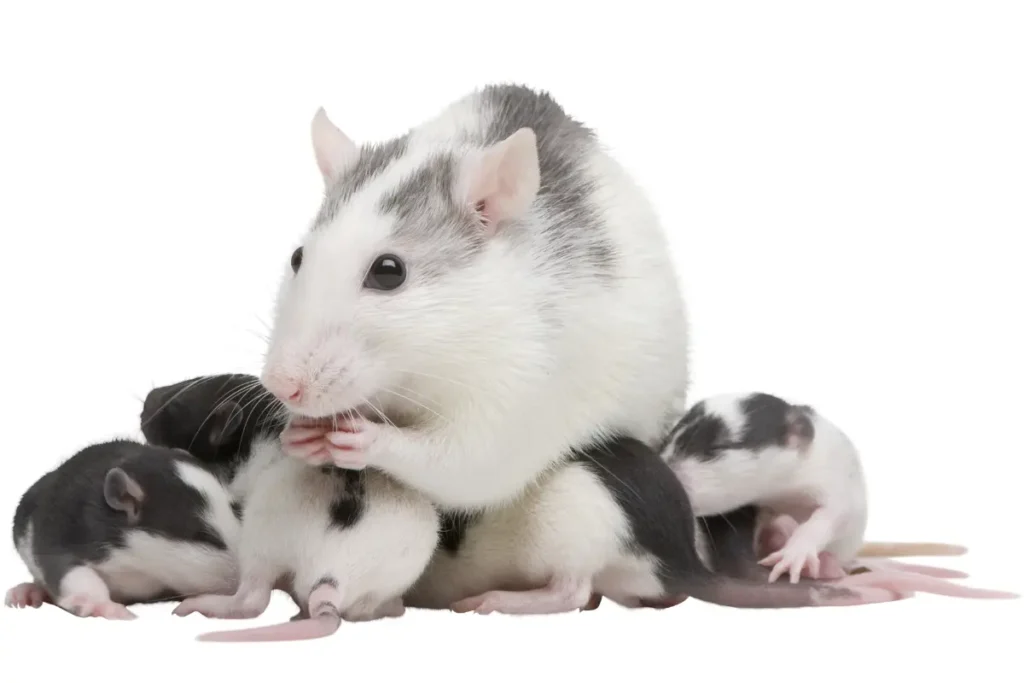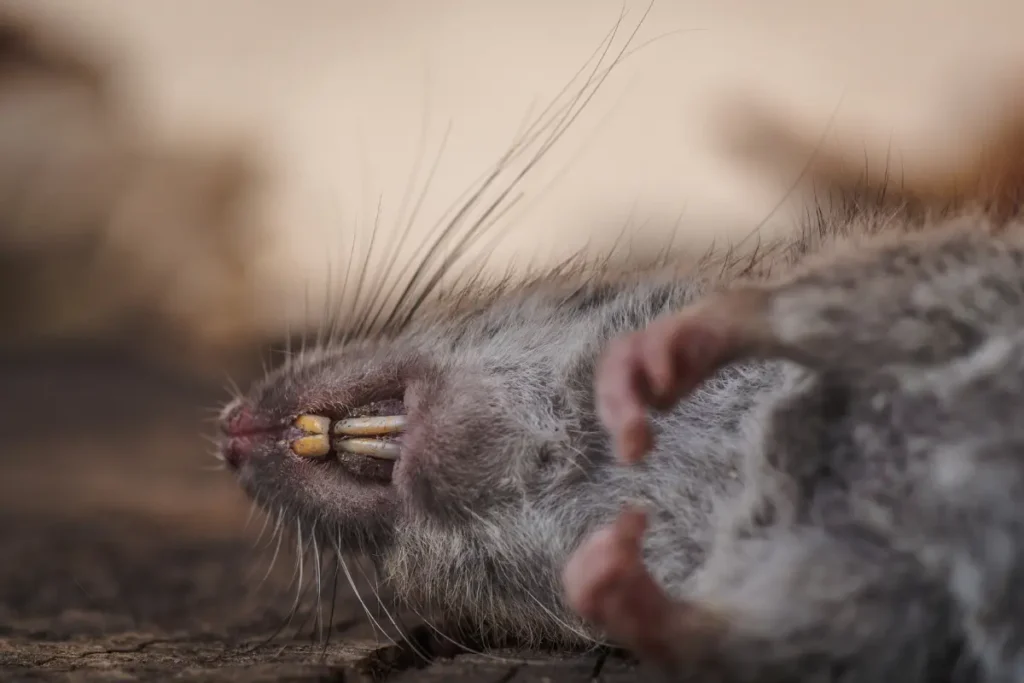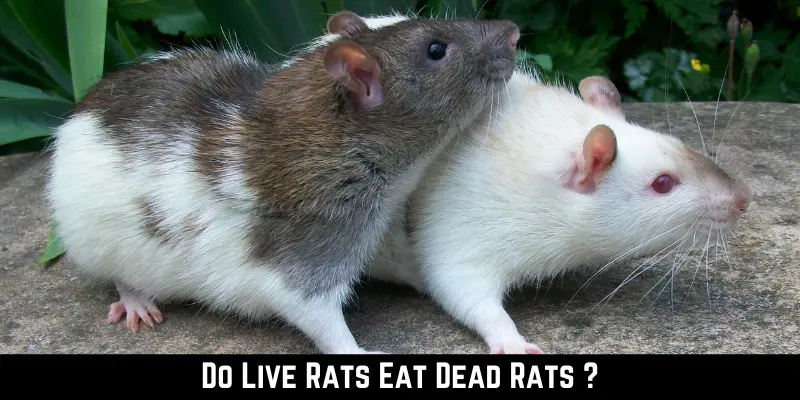More than 1,500 species, including rodents, have been documented to engage in cannibalism, which is a frequent environmental interaction in the animal kingdom. But, do live rats eat dead rats?
Yes, live rats consume dead rats. Rats cannibalize because they are opportunistic. There are numerous reasons why they might do this, but the main one that comes to mind is that if they leave the body to rot, the odor may draw predators to their area and endanger the remaining mischief.
If their young are sick or dead, many rodent mothers will eat some of them. To learn more about cannibalism in rats, read the entire article.
Is It Normal For Rats To Eat Dead Rats?
Wild rats do eat anything they can because they are opportunistic omnivores. They go hunting at night. Additionally, they taste things by consuming a tiny amount to ensure proper digestion.
They even consume their feces. By eating their feces, they can consume any folic acid, biotin, and vitamin K that would otherwise be missed because these nutrients are difficult to absorb. And the rat eats the dead rat.
Additionally, rats have been observed to consume their dead nest mates. This behavior is thought to be a form of self-preservation because, in the wild, the odor of decomposition would likely draw other predators to the rats’ nesting area.
Since there are no longer any food sources for rats, they won’t simply move to other territories and start fighting over scraps. They’ll start eating each other. They are mammals, just like humans, so when humans are extremely hungry, they won’t act the same.
Will Rats Go Near A Dead Rat?

Yes, alive rats will approach dead rats. Being social animals, rats are likely to have more living counterparts nearby if one is found dead. If there are dead rats anywhere.
That corpse will not only make people sick, but it will also attract more rodents, including other rats.
People must take the following precautions to help reduce their chances of finding another rat, whether it is alive or dead:
Maintain building repairs and maintenance to reduce entry points.
- Trim tree branches to prevent them from touching a building or a home and provide rats with a way to climb inside.
- Rats won’t be able to climb up gutters if they are covered in wire or mesh.
- By erecting a patio, laying stones around your home, and maintaining a well-kept yard, you can prevent rats from digging tunnels.
- Purchase a rat-proof, heavy-duty outdoor trash container.
- Food products should not be flushed or left in drains.
Do Dead Rats Attract More Rats?
Yes, dead rats do attract more rats, and for those who have unwanted rats living in their homes, this could be a problem.
A rat will frequently gravitate toward and investigate a dead rat’s body if it detects its scent. They typically won’t linger for very long, but as we’ve already discussed, they may eat the carcass.
If a rat dies inside the home, it should be removed as soon as possible to avoid attracting other animals. However, proceed with caution because rats (especially dead ones) may be infectious. It might be a good decision to hire a professional for this because they are trained in how to remove rats safely.
What Do Rats Do When They Find Dead Rats?
Live rats frequently investigate the body of dead rats in some other way, such as by sniffing, gazing, or standing on them. This could last a few seconds to a few hours before the rat decides whether to eat the body or leave it alone.
When a pet rat’s cage mate dies, they frequently experience emotional reactions, and if you look closely, you can see them lamenting the loss of their companion.
Rats can experience feelings of missing someone, though we are still unsure if they fully comprehend the concept of death.
Grief has been observed in rats who have lost their cage mates. I’ve heard stories from people who have pet rats who noticed that when their cage mates died, their pets became extremely upset.
It appears that the experience had a significant impact on the rats because they never truly recovered.
Do Rats Eat Poisoned Dead Rats?
Yes, rats eat poisoned dead rats. Rats do not always die immediately after ingesting rat poison. They might flee to a different location, pass away, and then be scavenged by a different animal or pet, who would then eat them and consume the poison.
It is fierce to use rat poison on rodents because it results in their suffering and puts other species at risk of contracting diseases.
Rat poisons, or rodenticides as they are professionally known, come in a variety of forms. In general, rodenticides are used to lure pests into eating them, which slowly kills them.
Rat poisons come in a variety of ingredients and methods for killing rats. Anticoagulants are one of the most common and one of the harshest types. Anticoagulants keep rats’ blood from clotting, causing them to die from within.
Do Rats Eat Their Dead Babies?

Yes, rats have been known to consume their own young, but they’re not the only ones. Contrary to popular belief, infanticide occurs frequently in the animal kingdom.
She can go down this path for a variety of reasons and causes, all of which are outside of her control. Many factors can lead a mother to consume her infant, including stress, fear of predators, the baby’s death, and a lack of food and sustenance.
Make sure your pet rat has enough water and food. Also, make sure there is enough quiet and quiet and that she is not stressed after giving birth. You will reduce the likelihood of her taking this action by doing so, but there is no guarantee that it will not occur regardless of what you do.
Will A Dead Rat Eventually Stop Smelling?
Normally, it takes up to three to five weeks for a dead rat to start to smell after it has died. There is an unpleasant odor created by the decay of a rat’s body, which persists until it is finished.
The length of time depends on a variety of factors. Temperature, humidity, body size, and ventilation are examples of such factors.
Even though the decomposition is finished, the smell won’t disappear right away. When dead rats are found in walls, attics, or basements, it frequently remains there for a few weeks, which can be extremely annoying for homeowners.
As a result, many people hire a pest control company to take care of the problem. They can safely remove the rat from your home after locating it and locating its location.
What Would Eat A Dead Rat?
A dead rat might be left undiscovered for days, which would invite other animals into your home. Other wild cats that hunt them include mountain lions, red foxes, and bobcats.
The domestic cat is not the only cat species that feed on rodents. Raptors are birds of prey, a type of bird. The most typical rat predators are these birds.
Many other animals eat both dead and live rats for a variety of reasons. Being an easy target for the predator is one of them. It has also been established that rats are nutrient-dense for several animals.
Many wild birds of prey and other prey animals consume rodents as part of their diet.
What Does A Rotting Dead Rat Smell Like?

The smell of rotting dead rats is offensive and can linger for weeks. The foul odor is produced as the rat’s body begins to decompose.
This natural process produces toxic gases such as methane, hydrogen sulfide, and ammonia. When these gases combine, they produce an unforgettable odor.
Is It OK To Leave A Dead Rat In The Wall?
A dead rat could be simply left on your wall, but that could lead to issues. First of all, you won’t want to spend a lot of time at home over the next few weeks because the stench probably won’t be bearable.
Second, as was already mentioned, a dead rat may attract additional rats and rodents, which could eventually cause more serious issues. Perhaps you can live with this, and I’m sure many people do, but to reduce stench and further infestation.
I advise removing dead rats from your walls as soon as you can. Because More than 35 diseases have been linked to rats and mice.
These diseases can be transmitted to humans through direct contact with dead rats, contact with live rats’ feces, urine, or saliva, and rodent bites for sure.
Conclusion
Live rats eat dead rats. Many rodent mothers will eat some of their sick or dead young. Because rats are opportunistic, they cannibalize. They could do this for a variety of reasons.
This is thought to be a form of self-preservation because the odor of decomposition would likely attract other predators to the rats’ nesting area in the wild.
The bodies of dead rats are frequently investigated by live rats in other ways, such as sniffing, gazing, or standing on them. The decay of a rat’s body produces an unpleasant odor that lasts until it is finished.
When dead rats are discovered in walls, attics, or basements, they frequently remain for several weeks, which can be extremely inconvenient for homeowners. After locating and locating the rat, they can safely remove it from your home.
References
Fahd A. Al-Mekhlafi, Decomposition process for buried rat (Rattus norvegicus, Berkenhout 1769) carcasses in Riyadh city, Saudi Arabia: A preliminary study, Saudi Journal of Biological Sciences, Volume 28, Issue 7, 2021.
Gautam SH, Verhagen JV. Evidence that the sweetness of odors depends on experience in rats. Chem Senses. 2010 Nov.



